Letters from Madagascar: Zebu, Dancing and Personal Space
On our next morning in Faux Cap, Lili, a Malagasy student at the Centre Ecologique à Libanona (CEL), and I met our host family and travelled to our village. Lili was my translator, guide, fellow student, and general life-saver. She is quiet, kind, and has an easy and infectious laugh. Without her, I think I would have lost it.
We spent the morning cooking and talking with our host mom in the kitchen, a tiny, one-room, wooden hut built near a house of about the same size. Lili would translate occasionally, but for the most part, I sat in silence and tried to pick out Malagasy words here and there (the conversation was actually held in Tandroy, a dialect of Malagasy which I understand even less than the official dialect). At one point, various women from the village (all of whom were crowded into the kitchen) tried to teach me a song or two, and even gave me a drum. Luckily, tone-deafness is a universal language, and they quickly took the drum away and gave up on the songs.
They replaced the drum with a dance lesson. I enjoyed this. For the first hour. Even for the first two hours. Hell, I was still having a somewhat enjoyable time after the third hour. But by hour four, I was a little worn out. By hour five, I was ready to stop, or at least dance on the sidelines, instead of in the center of everyone. By hour six, I wanted to rip the whistle that one of my family members was blowing incessantly out of his mouth, throw it into the cactus patch, and stamp it into the ground.
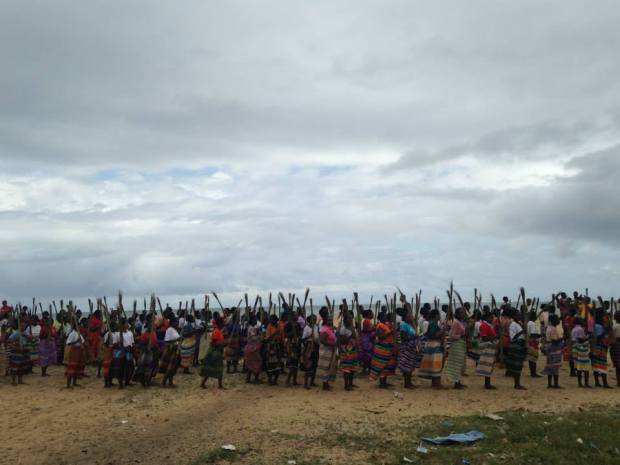
Women of one tranobe bringing in the rambo which they will use to weave new mats, hats, and other things to celebrate Sambatra.
What provoked such wrath? How to explain. The thing about the Tandroy (the people of the far south) is that individualism isn’t really is a thing. Now I’m not saying that individualism is good, or even that it’s better than any of the alternatives. But it is what I am accustomed to. More than that, it is a part of my very being. The fact that my things, body, and time belong to me, and not the community, is engrained into my conception of the way I exist in the world. The funny thing is that, prior to my week in Faux Cap, I never thought that these things were integral to my lifestyle. Personal space never struck me as a thing I was particularly possessive of, nor was I all that attached to the idea of keeping my things all to myself. In fact, I rather liked the idea of community-based life.
Ha.
Haha.
Ha.
I love the right I have to personal space back in the states. I love that my body is mine, and no one else’s, and that I get to decide how and where it moves, and that no one can (politely) grab my arms and shoulders and torso while I’m dancing and direct me elsewhere. I love that alone time is an acceptable thing, and that if I am a guest at someone’s home, they will make a point to give me time to myself. I love that time is something that “belongs” to me, and that I get to choose how I spend the time I have been given. I love that my room is my own space, and that people knock and wait for my affirmative response before entering, rather than crowding around my tent, peering in, and talking to me in a language which I don’t understand.
I’m not at all saying that I don’t appreciate community-based living. I’m not saying that it’s bad or wrong, or even that I dislike it. What I am saying is that being suddenly and totally immersed in that culture, being surrounded by people singing at the tops of their lungs, blowing whistles as loud as they can, and dancing in the middle of the group for six straight hours while people grab and move my body for me, is hard. It is mentally, emotionally, culturally, and physically exhausting. Add to that the stress of not understanding a word that anyone says, and what you get is ideations about stamping a whistle into the cactus patch.
The dancing continued every afternoon that week, but for (slightly) less time. As in 4 hours. Or 5. I learned to say that I was tired, and assert my desire to take a break. It got better. Slightly. Did I mention that my village had fleas? Everywhere. And lots of them. By the end of the week, I had over 300 bites across my body. I could barely sleep at night, between the itching and the feeling of little fleas crawling over my legs. So, that made dancing harder.
I don’t want to suggest that there weren’t enjoyable parts to this experience. There were times when I was working in the fields with my family, or the women braided my hair, or when I spoke with the people of the village about their experiences, when I felt connected to the people and the land. I watched as my host mom harvested and used every part of a sweet potato plant, cooking the tubers and boiling the leaves for dinner, leaving behind the parts that were insufficient for human consumption for the zebu (the cattle which are how people in the south invest their money; think a large, one-humped, moving bank). I also watched as a child was punished (the only clear punishment I saw all week) for spilling less than a quarter cup of water. After that, I understood why the 1.5 liters of greenish water they gave me for a shower was one of the greatest sacrifices they made for me.
This place, this land, these people—they awe me.
Much love from across the ocean,
Hannah
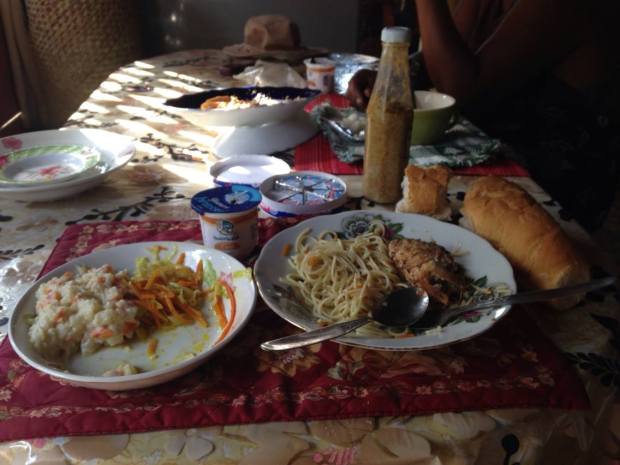




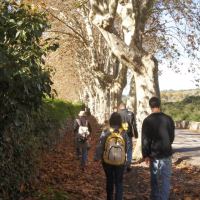
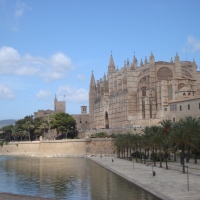
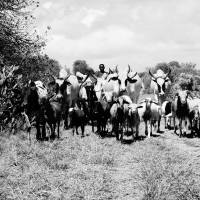
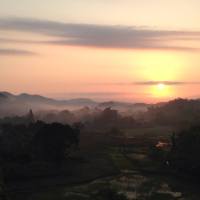






Happy Monday, bunny. I always love seeing a new post on your blog.
One typo in the title: Danceing should be Dancing.
Loves… 🙂
I’m always happy to bring a little warmth to a friggin cold morning.
Thanks for catching the error mom.
Loves 🙂
Hannah’s story brings to mind that it is only when we travel that we deeply begin to appreciate the gifts we have at home.
I feel exactly the same way. All of my travels have brought me out of myself, but she is so far apart from everything she has ever know. She amazes me every day and i am so glad she has made you feel as well.
Pingback: Letters from Madagascar: Dancing for joy in the rain | Wanderlust Nation
Pingback: Letters from Madagascar: Dancing for joy in the rain